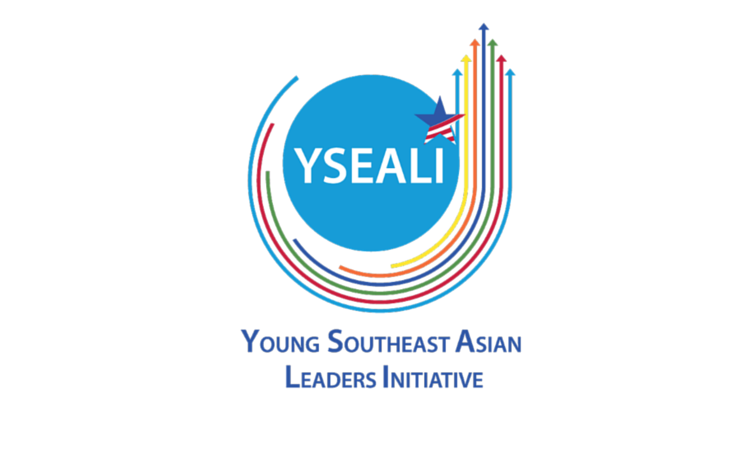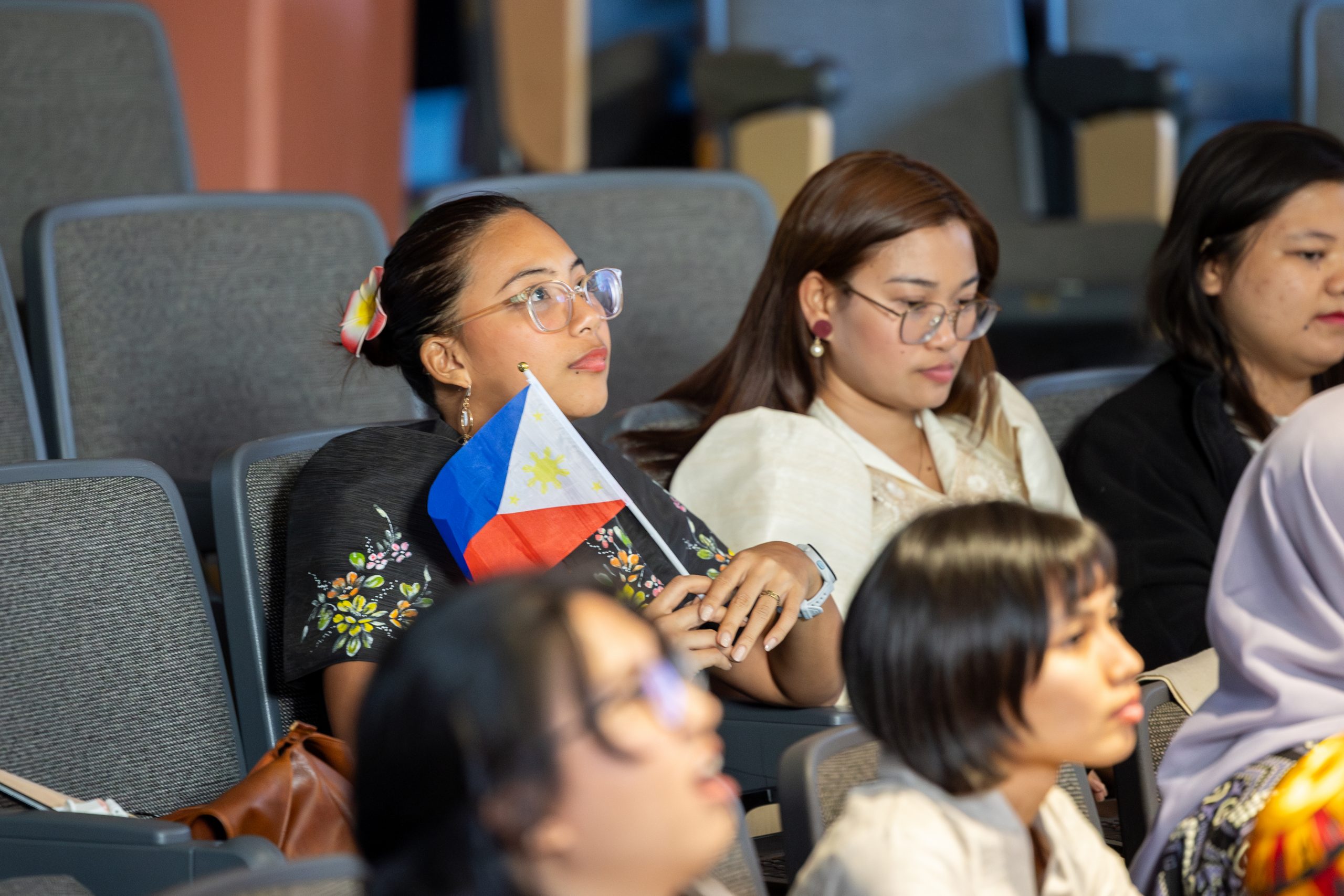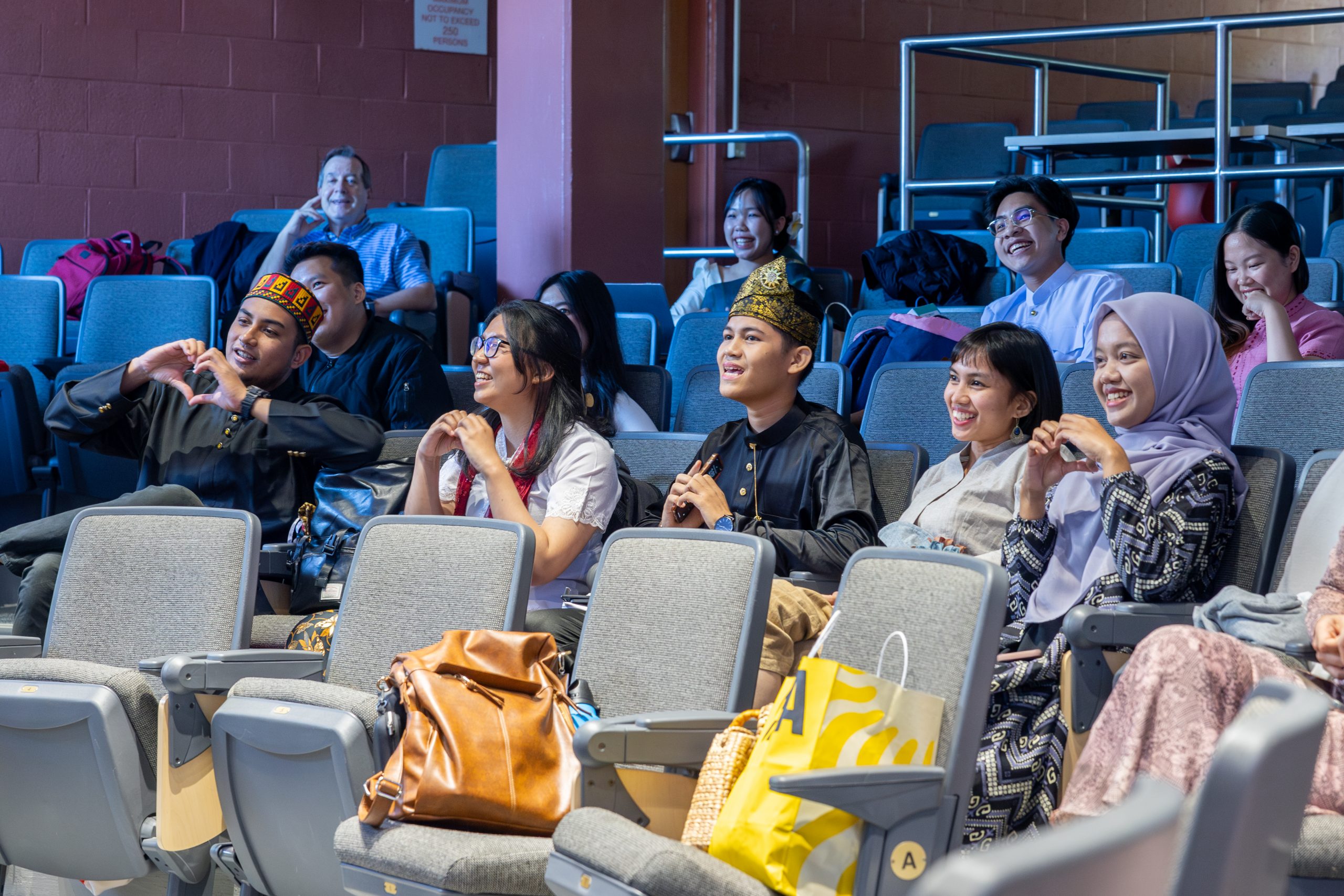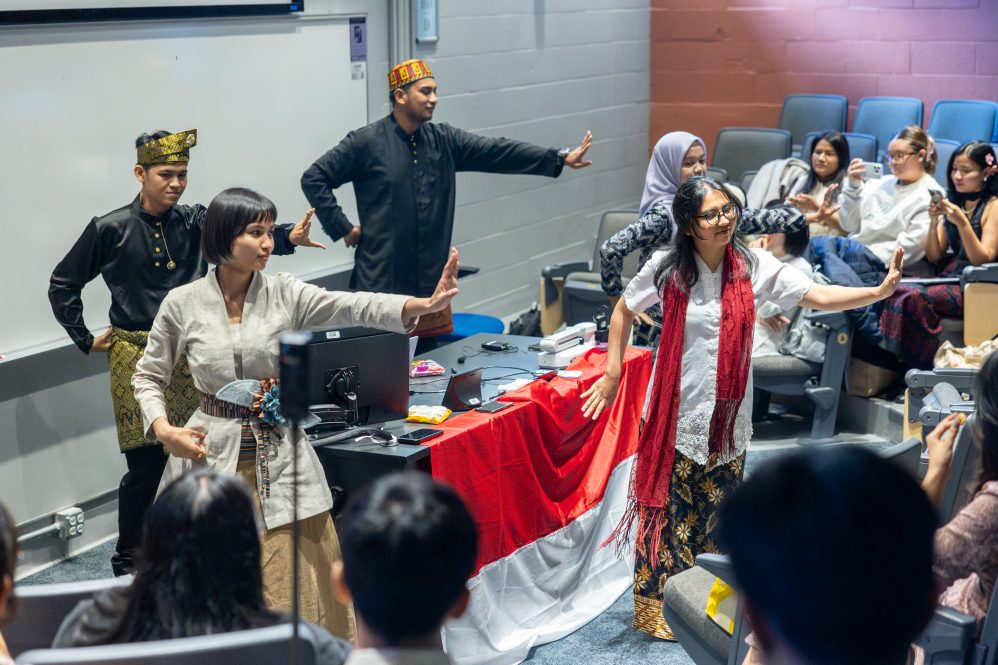Coconuts are a big deal in Purwokerto, the Indonesian community where Sefirstya “Sabrina” Shabrinazzahrani lives.
Indonesians love coconut water, she explains, but with widespread coconut consumption comes a huge waste product that communities are forced to deal with: coconut husks.
“We produce more than 300,000 tons of coconut husk waste every year in Indonesia,” Shabrinazzahrani says, “and when we let them rot, we have another problem, which is dengue.”
Dengue fever is spread by mosquitoes, which find a fertile breeding ground in moist piles of accumulated coconut husks. Indonesia is one of the 30 most highly endemic countries for dengue in the world – in 2024, more than 149,000 cases of dengue had been reported as of July 1.
But Shabrinazzahrani wants to help solve the coconut waste problem, starting in Purwokerto, where she’s the owner of a plant shop called Simungil Cactus that is focused on both the affordability and the sustainability of ornamental plants.
In her shop, they began fashioning pots for the cacti and succulent plants that they sell out of coconut husk waste.
“Our coco pots have already tackled at least 10,000 kilos of coconut waste in my local community,” says Shabrinazzahrani, which has the tri-fold benefit of reducing the waste, reducing the shop’s reliance on non-biodegradable plastic pots, and creating an employment opportunity for her local community.
“Our project name, it means ‘small cactus,’” she says, “but with that small cactus, I believe that even small things can make a bigger change.”
Shabrinazzahrani spoke about her work at a forum held on a mid-October morning at the UConn School of Business, but she didn’t travel from Indonesia to Connecticut just to talk about what she’s already doing back home.
She and her cohort of 26 fellows from 11 Southeast Asian countries were hosted at UConn Storrs this fall for four weeks – sponsored by the U.S. Department of State’s Bureau of Educational and Cultural Affairs – where they learned from a dynamic group of faculty, mentors, and students, as well as each other, about how they can develop, strengthen, and grow their entrepreneurial visions to help enact economic and social development in their home countries.
The Centerpiece
The academic fellows who visited UConn this fall were part of the 17th cohort of the Young Southeast Asian Leaders Initiative, or YSEALI, at UConn. YSEALI was created in 2013 and funded by the State Department to help strengthen leadership development in Southeast Asia.
The YSEALI Academic Fellows Program brings two cohorts per year of undergraduates and recent graduates between the ages of 18 and 25 to the U.S. for an intensive institute that includes academic residency, leadership development, community service, and cultural activities.
 In a very competitive selection process, YSEALI fellows are chosen by their U.S. embassies based on their background, experience, leadership record, and commitment to service, and are representatives from the 11 participating countries: Brunei, Cambodia, Indonesia, Laos, Malaysia, Myanmar, the Philippines, Singapore, Thailand, Timor-Leste, and Vietnam.
In a very competitive selection process, YSEALI fellows are chosen by their U.S. embassies based on their background, experience, leadership record, and commitment to service, and are representatives from the 11 participating countries: Brunei, Cambodia, Indonesia, Laos, Malaysia, Myanmar, the Philippines, Singapore, Thailand, Timor-Leste, and Vietnam.
Since 2015, UConn has served as the primary administrator for YSEALI Academic Fellows Program for the Social Entrepreneurship and Economic Development theme through its Global Training and Development Institute, or GTDI, currently working in partnership with Texas Global at the University of Texas at Austin.
“We provide social entrepreneurship training to YSEALI Fellows, emphasizing leadership skills committed to inclusiveness, social impact and civic engagement,” says Tolga Turker, the director of global entrepreneurial programs at UConn Global who oversees the GTDI’s global operations and portfolio.
“The fellows join us to receive specialized training led by UConn professors and local entrepreneurship experts,” says Turker. “Some of the exercises are managed by our site partners – they visit campus locations, meet private entrepreneurs, small-scale businesses, and volunteer for community service each week. They then return to their home countries to apply what they learned to address a variety of issues ranging from economic inequality to urbanization and environmental sustainability in their own communities. Additionally, we provide seed grants to select fellows to help fund their projects, and we continue to follow up on their progress after the in-person program.”
“We are thrilled to host YSEALI fellows on our campus,” says Ngozi Taffe, UConn’s associate vice president for global affairs. “Our program is unique, with activities designed to support individual growth while fostering cross-cultural collaboration and innovation. GTDI has a remarkable track record in empowering entrepreneurs and we are confident that, with their guidance and UConn’s extensive resources, YSEALI fellows gain the skills and networks needed to create lasting impact in their communities.”
Under new contracts with the State Department, UConn will continue to host the program for the next three years.
“We are incredibly proud of our strong track record with the State Department in executing the YSEALI Academic Fellows Program – it has been the centerpiece of the Global Training and Development Institute. As we continue to grow, we are now expanding our geographic focus to include more regions, creating even greater and far-reaching impact,” Turker says.
The Energy
Each fellow in the program is asked to identify a social problem in their community or country, particularly one that they are passionate about solving, and develop a business plan for a social enterprise that will address an important aspect of that problem.
For Shabrinazzahrani, that problem was enhancing sustainability practices in her community while addressing a public health issue caused by the accumulation of a waste product.
For other fellows who resided at UConn this fall, those problems included empowering women living with disabilities in Vietnam who are struggling to be mothers while running their own businesses to become economically independent. And creating accessible food products to help combat childhood malnutrition in the rural villages of Timor-Leste. And helping to meet the demand for sustainable fashion in Brunei through direct sales, ecommerce, customized services, and workshops. And building gamified learning platforms in the Khmer language to help make education more accessible and fun for Cambodians.
Through the YSEALI program, fellows learn how to use business techniques and entrepreneurial skills while also problem-solving and figuring out how to be nimble and creative.
Though their ideas are diverse and at various stages of development – some fellows are looking to start an initiative, while others want to learn how to take something they’ve already started building to the next level – what has been striking to the program’s academic director, Glenn Robinson, is the energy the fellows consistently bring to the program.
“What the young folks bring is energy, passion, and really, a blank slate,” says Robinson, who has served as the academic director for UConn YSEALI for the last four cohorts, and first became involved with YSEALI at the University of Texas at Austin before his retirement as the director of global innovation and entrepreneurship.
“They haven’t developed any bad habits, and so they’re malleable, they’re learning, and they’re excited. They come, they’re kind of bright-eyed. Most of them have never been to the U.S. before. And it’s an opportunity to get energized and learn about their cultures.”

During their time at UConn, the fellows learn the ins-and-outs of building a business plan, develop pitch decks, learn public speaking techniques, and practice those skills with each other and with other UConn students and mentors.
“What I enjoy is that energy sharing,” Robinson says. “I tell them that I want to help them avoid the mistakes that I made coming up as an entrepreneur so that they can make their own mistakes – because we all make mistakes. But hopefully, in doing that, we can increase their consciousness level on how to run a successful entrepreneurial venture, how to hire a good team, how to assess markets, and how to fund enterprises.
“Then, through learning all that stuff, you can shorten the runway to the market and success, hopefully create jobs and wealth for them, for their employees, for their communities, and for their nations.”
Another component of the YSEALI program, though, is that they learn about U.S. history, government, and culture. They visit nonprofit organizations, hear from volunteers, and work alongside them.
“We want to share the importance of volunteerism in the U.S.,” Robinson explains, “so they get the opportunity to visit other nonprofits that are operating in the social enterprise space and learn what social entrepreneurship means in the U.S. context.”
And they also apply themselves socially within the UConn community – engaging with business and international studies students, and learning about the similarities and differences between each other’s cultures.
“One of the benefits for UConn students is to meet these fellows and to get a new appreciation for their impression of the opportunities that oftentimes we, here in the U.S., take for granted,” Robinson says.
In the final days of the program, the fellows travel to Washington D.C., where they meet with State Department officials before returning home.
The Reach
The overall goal of GTDI at UConn is to foster global sustainable development, citizenship, and cross-cultural understanding through development and transformational learning experiences. Since 1961, more than 10,000 government officials, business and nonprofit leaders, and university students from 130 countries have participated in the GTDI’s education and training programs.
While YSEALI may be the centerpiece, it is one of many initiatives that the institute has underway.
Next year, UConn’s GTDI will host the Global Leadership and Entrepreneurship Academy, or GLEA, sponsored by the U.S. Embassy in Tashkent, Uzbekistan, featuring a three-week intensive academic exchange at UConn Storrs focused on social entrepreneurship and leadership.
The institute will also manage an India-based grant through the U.S. Embassy in New Delhi for a startup hub – called Nexus 3.0 – for the next year. Through both an incubator and training programs, Nexus works to showcase the best of U.S. and Indian entrepreneurship, innovation, and technology commercialization.

“UConn’s strategic plan and recent University-wide initiatives highlight a commitment to innovation and entrepreneurship,” says Turker. “These grants exemplify how our work aligns with the University’s strategic goals, demonstrating how we can leverage the expertise and knowledge we have developed at UConn and across the state of Connecticut. Through these efforts, we aim to cultivate a new generation of global leaders with cross-cultural competencies who can drive positive change. By fostering innovative thinking and an entrepreneurial mindset, these leaders will tackle complex challenges facing their communities, with the potential for their local solutions to create a lasting global impact.”
“Universities have long been a place where diverse people can come together to collaborate in ways that are mutually beneficial, and part of our University’s global mission is to go far beyond the classroom to help address real-world problems,” says Daniel Weiner, a professor of geography and UConn’s vice president for global affairs. “The programs and work done by GTDI are an integral part of our strategic and global-minded efforts at UConn.”
The institute also runs a number of summer programs, including a three-week nutritional sciences exchange with students from four universities in South Korea and a separate program with students and staff from East China Normal University that this year focused on how exploring the past helps us to understand the present and future.
Turker hopes to continue to expand GTDI’s reach, looking into places where the University doesn’t yet have a footprint.
These U.S.-based federal programs, like YSEALI and GLEA as well as the institute’s other initiatives make sense for the broader development of global entrepreneurship and social enterprises, says Robinson, but also make sense for UConn, in particular.
“It helps to spread UConn’s reputation in those countries, because they go home talking about being a Husky,” he says. “They buy the merch, and they go home, and they wear it, and they talk to their friends and their colleagues about how great UConn is.
“There’s also an opportunity for the students to maybe come back and study here, but more importantly, it just spreads UConn’s message across the globe.”
To learn more about initiatives and partnership opportunities available for businesses, faculty, staff, and student groups through UConn Global and the Global Training and Development Institute, visit global.uconn.edu and gtdi.uconn.edu.



